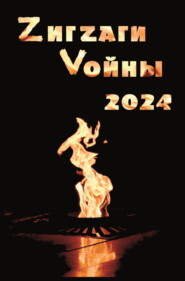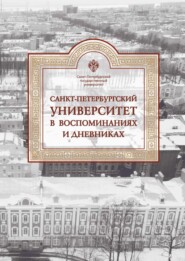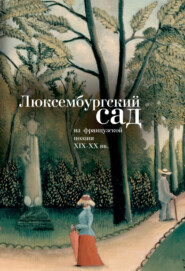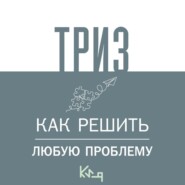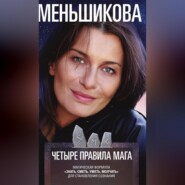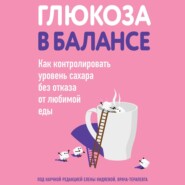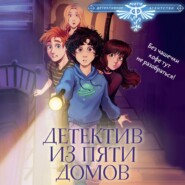По всем вопросам обращайтесь на: info@litportal.ru
(©) 2003-2024.
✖
Short-Stories
Настройки чтения
Размер шрифта
Высота строк
Поля
NOTES
BIOGRAPHY
Henri René Albert Guy de Maupassant, French novelist, dramatist, and short-story writer, was born in 1850. Until he was thirteen years old he had no teacher except his mother, who personally superintended the training of her two sons. Life for the two boys, during these early years, was free and happy, Guy was a strong and robust Norman, overflowing with animal spirits and exuberant with the joy of youthful life.
When thirteen years of age Maupassant attended the seminary at Yvetot, where he found school life irksome and a most distasteful contrast to his former free life. Later he became a student in the Lycée in Rouen. His experience as a student here was very pleasant, and he easily acquired his degree. In 1870 he was appointed to a clerkship in the Navy, and a little later to a more lucrative position in the Department of Public Instruction. His work in these two positions suffered very materially because of his negligence and daily practice in writing verses and essays for Flaubert, the most careful literary technicist in the history of literature, to criticize. For seven years Maupassant served this severe task-master, always writing, receiving criticisms, and publishing nothing.
Immediately after the publication of his first story Maupassant was hailed as a finished master artist. From 1880 to 1890 he published six novels, sixteen volumes of short-stories, three volumes of travels, and many newspaper articles. This gigantic task was performed only because of his regular habits and splendid physique. He wrote regularly every morning from seven o'clock until noon, and at night always wrote out notes on the impressions from his experiences of the day.
Maupassant was a natural artist deeply in love with the technique of his work. He did not write for money, although he believed that a writer should have plenty of this world's possessions, nor did he write for art's sake. In fact he avoided talking on the subject of writing and to all appearances seemed to despise his profession. He wrote because the restless, immitigable force within him compelled him to work like a slave. He thought little of morals, or religion, but was enamored with physical life and its insolvable problems. He was, above everything else, a truthful man. Sometimes his subjects are unclean and he treats them as such, but, if his subject is clean, his treatment is undefiled.
In 1887 the shadows of insanity began to creep athwart his life. Even in 1884 he seemed to feel a premonition of his coming catastrophe when he wrote: "I am afraid of the walls, of the furniture, of the familiar objects which seem to me to assume a kind of animal life. Above all, I fear the horrible confusion of my thought, of my reason escaping, entangled and scattered by an invisible and mysterious anguish." The dreaded disease developed until, in 1890, he had to suspend his writing. In 1892 he became wholly insane and had to be committed to an insane asylum where he died in a padded cell one year later.
BIOGRAPHICAL REFERENCES
The New International Encyclopaedia.
Encyclopaedia Britannica.
Bookman, 25:290-294_.
CRITICISMS
Maupassant's short-stories are generally conceded to be the best in French literature. He handles his materials with great care, and his descriptions of scenes and characters are unequalled. In his first writings he seems impassive to the point of frigidity. He is a recorder who sets down exactly the life before him. This is one of the lessons he learned from Flaubert. He was not interested in what a character thought or felt, but he noted and fondled every action of his characters.
He loved life, despite the lack of solutions. At times his fondness for mere physical life leads him to the brutal stage. In his story, On the Water, he gives a confession of a purely sensual man: "How gladly, at times, I would think no more, feel no more, live the life of a brute, in a warm, bright country, in a yellow country, without crude and brutal verdure, in one of those Eastern countries in which one falls asleep without concern, is active and has no cares, loves and has no distress, and is scarcely aware that one is going on living!"
Maupassant was a keen observer, possessed an excellent but not lofty imagination, and never asserted a philosophy of life. His writings are all interesting, terse, precise, and truthful, but lack the glow that comes with a sympathetic and spiritual outlook on life. Zola says of him: "… a Latin of good, clear, solid head, a maker of beautiful sentences shining like gold…" He chooses a single incident, a few characteristics and then moulds them into a compact story. Nine-tenths of his stories deal with selfishness and hypocrisy.
Tolstoi wrote: "Maupassant possessed genius, that gift of attention revealing in the objects and facts of life properties not perceived by others; he possessed a beautiful form of expression, uttering clearly, simply, and with charm what he wished to say; and he possessed also the merit of sincerity, without which a work of art produces no effect; that is he did not merely pretend to love or hate, but did indeed love or hate what he described."
GENERAL REFERENCES
Inquiries and Opinions, Brander Matthews.
"A Criticism," Outlook, 88:973-976.
"Greatest Short Story Writer that Ever Lived," Current Literature, 42:636-638.
COLLATERAL READINGS
Happiness (Odd Number), Guy de Maupassant.
The Wolf, Guy de Maupassant.
La Mčre Sauvage, Guy de Maupassant.
The Confession, Guy de Maupassant.
On the Journey, Guy de Maupassant.
The Beggar, Guy de Maupassant.
A Ghost, Guy de Maupassant.
Little Soldier, Guy de Maupassant.
The Wreck, Guy de Maupassant.
The Necklace, Guy de Maupassant.
A Note of Scarlet, Ruth Stuart.
Expiation, Octave Thanet.
Fagan, Rowland Thomas.
La Grande Bretęche ("Jessup and Canby"), Honoré de Balzac.
THE MAN WHO WAS[12 - The Man Who Was was written in 1889.]
By Rudyard Kipling (1865- )
Let it be clearly understood that the Russian is a delightful person till he tucks his shirt in. As an Oriental he is charming. It is only when he insists upon being treated as the most easterly of Western peoples, instead of the most westerly of Easterns, that he becomes a racial anomaly[13 - 46:6 anomaly. Deviation from type.] extremely difficult to handle. The host never knows which side of his nature is going to turn up next.
Dirkovitch was a Russian – a Russian of the Russians, as he said – who appeared to get his bread by serving the czar as an officer in a Cossack regiment, and corresponding for a Russian newspaper with a name that was never twice the same. He was a handsome young Oriental, with a taste for wandering through unexplored portions of the earth, and he arrived in India from nowhere in particular. At least no living man could ascertain whether it was by way of Balkh, Budukhshan, Chitral, Beloochistan, Nepaul, or anywhere else. The Indian government, being in an unusually affable mood, gave orders that he was to be civilly treated, and shown everything that was to be seen; so he drifted, talking bad English and worse French, from one city to another till he forgathered with her Majesty's White Hussars[14 - 47:1 Hussars. Light-horse troopers armed with sabre and carbine.] in the city of Peshawur,[15 - 47:1 Peshawur. City in British India.] which stands at the mouth of that narrow sword-cut in the hills that men call the Khyber Pass. He was undoubtedly an officer, and he was decorated, after the manner of the Russians, with little enameled crosses, and he could talk, and (though this has nothing to do with his merits) he had been given up as a hopeless task or case by the Black Tyrones[16 - 47:7 Tyrones. From a county in Ireland by this name.], who, individually and collectively, with hot whisky and honey, mulled brandy and mixed spirits of all kinds, had striven in all hospitality to make him drunk. And when the Black Tyrones, who are exclusively Irish, fail to disturb the peace of head of a foreigner, that foreigner is certain to be a superior man. This was the argument of the Black Tyrones, but they were ever an unruly and self-opinionated regiment, and they allowed junior subalterns of four years' service to choose their wines. The spirits were always purchased by the colonel and a committee of majors. And a regiment that would so behave may be respected but cannot be loved.
The White Hussars were as conscientious in choosing their wine as in charging the enemy. There was a brandy that had been purchased by a cultured colonel a few years after the battle of Waterloo. It has been maturing ever since, and it was a marvelous brandy at the purchasing. The memory of that liquor would cause men to weep as they lay dying in the teak forests of upper Burmah[17 - 47:26 Burmah. In southeastern Asia. Part of the British Empire.] or the slime of the Irrawaddy[18 - 47:27 Irrawaddy. Chief river of Burma.]. And there was a port which was notable; and there was a champagne of an obscure brand, which always came to mess without any labels, because the White Hussars wished none to know where the source of supply might be found. The officer on whose head the champagne choosing lay was forbidden the use of tobacco for six weeks previous to sampling.
This particularity of detail is necessary to emphasize the fact that that champagne, that port, and above all, that brandy – the green and yellow and white liqueurs did not count – was placed at the absolute disposition of Dirkovitch, and he enjoyed himself hugely – even more than among the Black Tyrones.
But he remained distressingly European through it all. The White Hussars were – "My dear true friends," "Fellow-soldiers glorious," and "Brothers inseparable." He would unburden himself by the hour on the glorious future that awaited the combined arms of England and Russia when their hearts and their territories should run side by side, and the great mission of civilizing Asia should begin. That was unsatisfactory, because Asia is not going to be civilized after the methods of the West. There is too much Asia, and she is too old. You cannot reform a lady of many lovers, and Asia has been insatiable in her flirtations aforetime. She will never attend Sunday school, or learn to vote save with swords for tickets.
Dirkovitch knew this as well as any one else, but it suited him to talk special-correspondently and to make himself as genial as he could. Now and then he volunteered a little, a very little, information about his own Sotnia[19 - 48:27 Sotnia. Company of the Cossacks.] of Cossacks, left apparently to look after themselves somewhere at the back of beyond. He had done rough work in Central Asia, and had seen rather more help-yourself fighting than most men of his years. But he was careful never to betray his superiority, and more than careful to praise on all occasions the appearance, drill, uniform, and organization of her Majesty's White Hussars. And, indeed, they were a regiment to be admired. When Mrs. Durgan, widow of the late Sir John Durgan, arrived in their station, and after a short time had been proposed to by every single man at mess, she put the public sentiment very neatly when she explained that they were all so nice that unless she could marry them all, including the colonel and some majors who were already married, she was not going to content herself with one of them. Wherefore she wedded a little man in a rifle regiment – being by nature contradictious – and the White Hussars were going to wear crape on their arms, but compromised by attending the wedding in full force, and lining the aisle with unutterable reproach. She had jilted them all – from Basset-Holmer, the senior captain, to Little Mildred, the last subaltern, and he could have given her four thousand a year and a title. He was a viscount, and on his arrival the mess had said he had better go into the Guards, because they were all sons of large grocers and small clothiers in the Hussars, but Mildred begged very hard to be allowed to stay, and behaved so prettily that he was forgiven, and became a man, which is much more important than being any sort of viscount.
The only persons who did not share the general regard for the White Hussars were a few thousand gentlemen of Jewish extraction who lived across the border, and answered to the name of Pathan. They had only met the regiment officially, and for something less than twenty minutes, but the interview, which was complicated with many casualties, had filled them with prejudice. They even called the White Hussars "children of the devil," and sons of persons whom it would be perfectly impossible to meet in decent society. Yet they were not above making their aversion fill their money belts. The regiment possessed carbines, beautiful Martini-Henri carbines, that would cob a bullet into an enemy's camp at one thousand yards, and were even handier than the long rifle. Therefore they were coveted all along the border, and since demand inevitably breeds supply, they were supplied at the risk of life and limb for exactly their weight in coined silver – seven and one half pounds of rupees[20 - 50:14 rupee. Indian coin worth about forty-eight cents.], or sixteen pounds and a few shillings each, reckoning the rupee at par. They were stolen at night by snaky-haired thieves that crawled on their stomachs under the nose of the sentries; they disappeared mysteriously from armracks; and in the hot weather, when all the doors and windows were open, they vanished like puffs of their own smoke. The border people desired them first for their own family vendettas[21 - 50:21 vendettas. Private blood-feuds.] and then for contingencies. But in the long cold nights of the Northern Indian winter they were stolen most extensively. The traffic of murder was liveliest among the hills at that season, and prices ruled high. The regimental guards were first doubled and then trebled. A trooper does not much care if he loses a weapon – government must make it good – but he deeply resents the loss of his sleep. The regiment grew very angry, and one night-thief who managed to limp away bears the visible marks of their anger upon him to this hour. That incident stopped the burglaries for a time, and the guards were reduced accordingly, and the regiment devoted itself to polo with unexpected results, for it beat by two goals to one that very terrible polo corps the Lushkar Light Horse, though the latter had four ponies apiece for a short hour's fight, as well as a native officer who played like a lambent flame across the ground.
Then they gave a dinner to celebrate the event. The Lushkar team came, and Dirkovitch came, in the fullest full uniform of Cossack officer, which is as full as a dressing-gown, and was introduced to the Lushkars, and opened his eyes as he regarded them. They were lighter men than the Hussars, and they carried themselves with the swing that is the peculiar right of the Punjab[22 - 51:14 Punjab. Country of five rivers, tributaries of the Indus.] frontier force and all irregular horse. Like everything else in the service, it has to be learned; but unlike many things, it is never forgotten, and remains on the body till death.
The great beam-roofed mess room of the White Hussars was a sight to be remembered. All the mess plate was on the long table – the same table that had served up the bodies of five dead officers in a forgotten fight long and long ago – the dingy, battered standards faced the door of entrance, clumps of winter roses lay between the silver candlesticks, the portraits of eminent officers deceased looked down on their successors from between the heads of sambhur[23 - 81:26 Sambhur. A rusine deer found in India.], nilghai[24 - 51:26 nilghai. Antelope with hind legs shorter than its fore-legs.], maikhor, and, pride of all the mess, two grinning snow-leopards that had cost Basset-Holmer four months' leave that he might have spent in England instead of on the road to Thibet, and the daily risk of his life on ledge, snowslide, and glassy grass slope.
The servants, in spotless white muslin and the crest of their regiments on the brow of their turbans, waited behind their masters, who were clad in the scarlet and gold of the White Hussars and the cream and silver of the Lushkar Light Horse. Dirkovitch's dull green uniform was the only dark spot at the board, but his big onyx eyes made up for it. He was fraternizing effusively with the captain of the Lushkar team, who was wondering how many of Dirkovitch's Cossacks his own long, lathy down-countrymen could account for in a fair charge. But one does not speak of these things openly.
The talk rose higher and higher, and the regimental band played between the courses, as is the immemorial custom, till all tongues ceased for a moment with the removal of the dinner slips and the First Toast of Obligation, when the colonel, rising, said, "Mr. Vice, the Queen," and Little Mildred from the bottom of the table answered, "The Queen, God bless her!" and the big spurs clanked as the big men heaved themselves up and drank the Queen, upon whose pay they were falsely supposed to pay their mess bills. That sacrament of the mess never grows old, and never ceases to bring a lump into the throat of the listener wherever he be, by land or by sea. Dirkovitch rose with his "brothers glorious," but he could not understand. No one but an officer can understand what the toast means; and the bulk have more sentiment than comprehension. It all comes to the same in the end, as the enemy said when he was wriggling on a lance point. Immediately after the little silence that follows on the ceremony there entered the native officer who had played for the Lushkar team. He could not of course eat with the alien, but he came in at dessert, all six feet of him, with the blue-and-silver turban atop, and the big black top-boots below. The mess rose joyously as he thrust forward the hilt of his saber, in token of fealty, for the colonel of the White Hussars to touch, and dropped into a vacant chair amid shouts of "Rung ho! Hira Singh!" (which being translated means "Go in and win!"). "Did I whack you over the knee, old man?" "Ressaidar Sahib, what the devil made you play that kicking pig of a pony in the last ten minutes?" "Shabash, Ressaidar Sahib!" Then the voice of the colonel, "The health of Ressaidar Hira Singh!"
After the shouting had died away, Hira Singh rose to reply, for he was the cadet of a royal house, the son of a king's son, and knew what was due on these occasions. Thus he spoke in the vernacular: —
"Colonel Sahib and officers of this regiment, much honor have you done me. This will I remember. We came down from afar to play you; but we were beaten." ("No fault of yours, Ressaidar Sahib. Played on our own ground, y' know. Your ponies were cramped from the railway. Don't apologize.") "Therefore perhaps we will come again if it be so ordained." ("Hear! Hear, hear, indeed! Bravo! Hsh!") "Then we will play you afresh" ("Happy to meet you"), "till there are left no feet upon our ponies. Thus far for sport." He dropped one hand on his sword hilt and his eye wandered to Dirkovitch lolling back in his chair. "But if by the will of God there arises any other game which is not the polo game, then be assured, Colonel Sahib and officers, that we shall play it out side by side, though they" – again his eye sought Dirkovitch – "though they, I say, have fifty ponies to our one horse." And with a deep-mouthed Rung ho! that rang like a musket butt on flagstones, he sat down amid shoutings.






